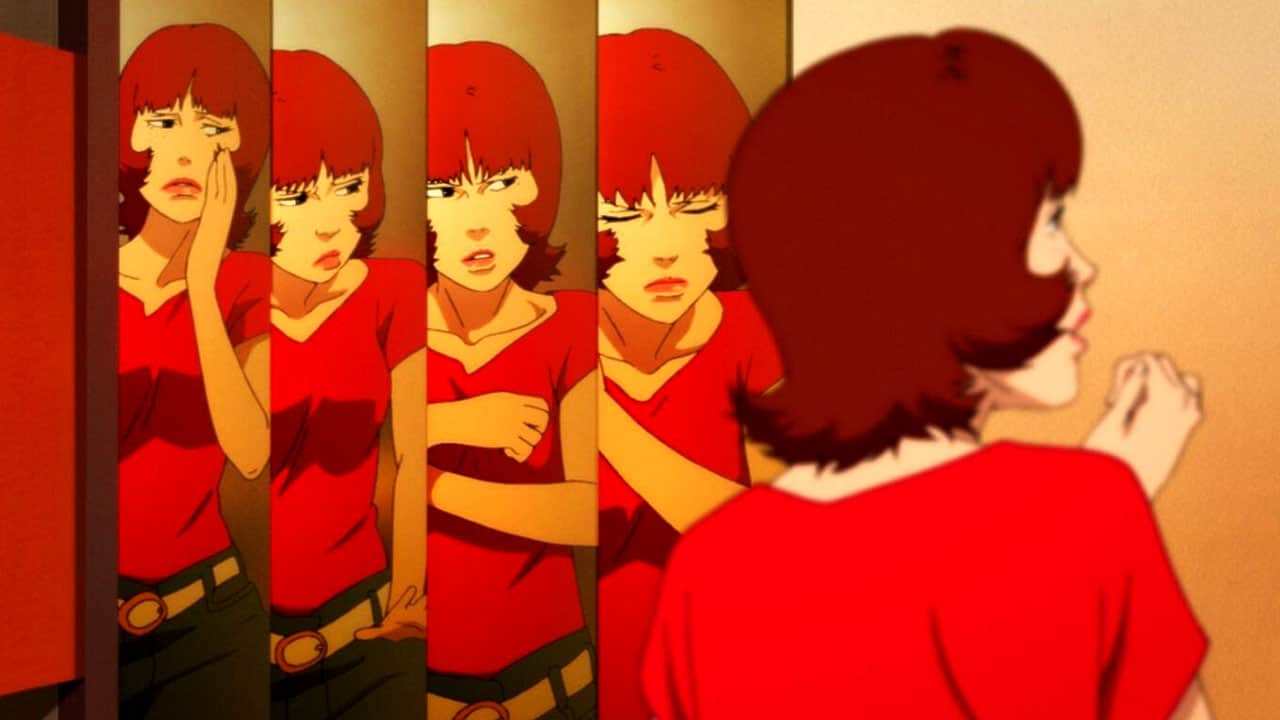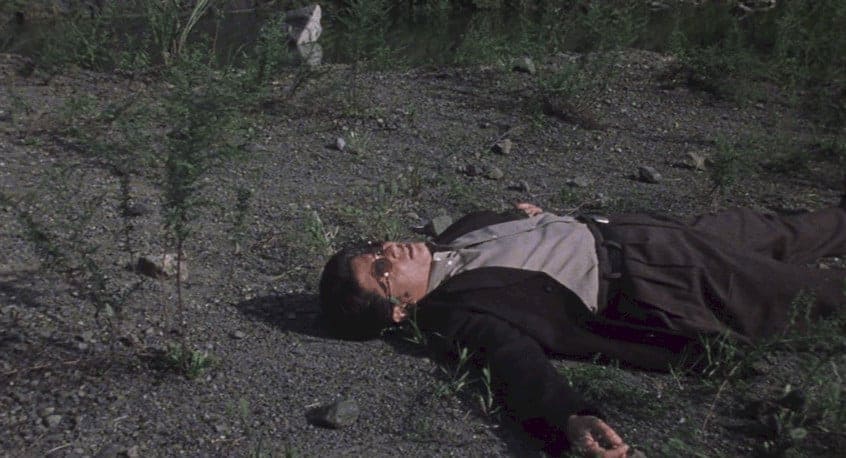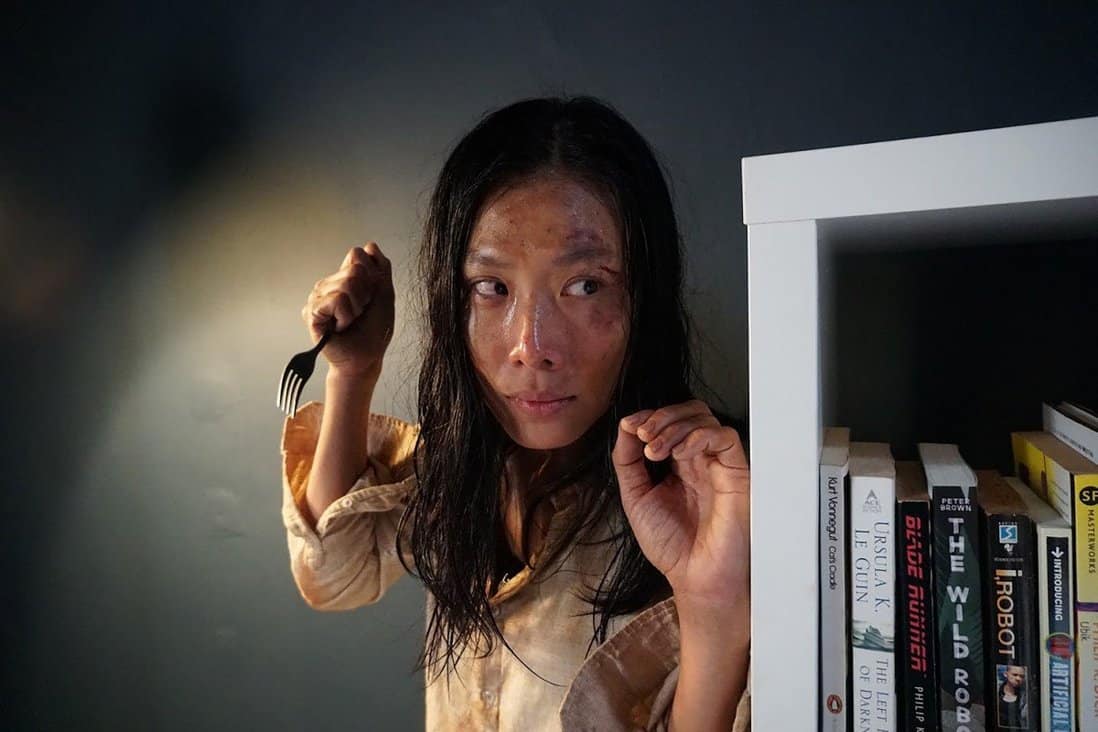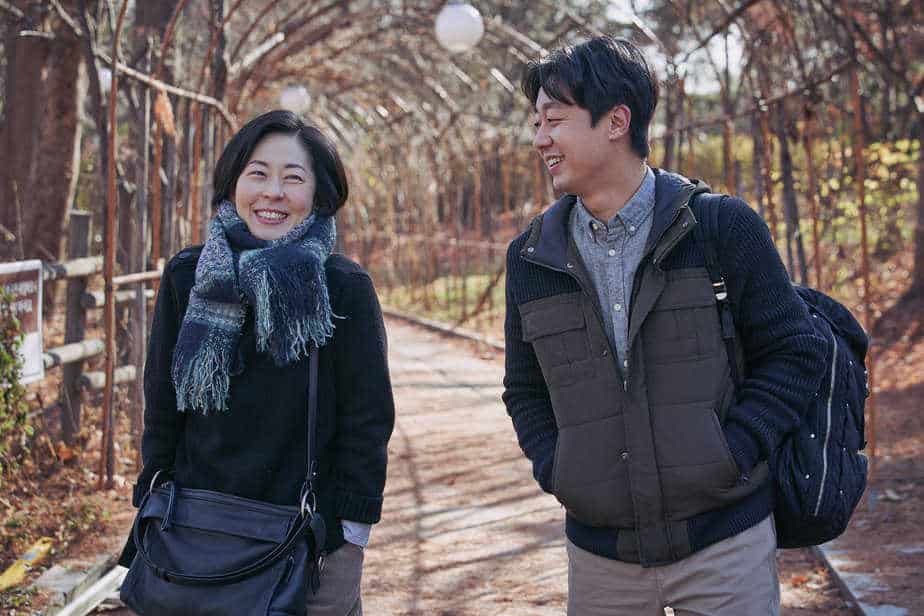In the first film of what in the future would be called the Prostitute Trilogy, Hong Kong director Fruit Chan constructs a film around contrasts and contradictions, using a playful fruity metaphor for those contrasts. Following a previous trilogy dedicated to the handover (“Made In Hong Kong”, “The Longest Summer” and “Little Cheung”) “Durian Durian” was shot straight after “Little Cheung” and it shares with it the little, 8 year-old actress Mak Wai-fan, beside the incredibly talented, non-professional Qin Hailu who was named Best Actress for this film by the Hong Kong Film Critics Society in the same year.
The film consists of two distinct and contrasting parts; the first one is set in Hong Kong, in the busy district of Mong Kok. Yan (Qin Hailu) is a young woman from Mainland China who is trying to earn as much money as she can, working as a prostitute, in the short time that her 3-month visa allows her. She is therefore trapped in a frantic loop of work, take away food and little naps in her tiny shared flat. But she is strong and determined; work is just a means to an end. Every day Yan waits in a tearoom populated by co-workers and pimps and when the call with instructions arrives, she walks to the designated hotel.

Watching her pacing up and down is Fan (Mak Wai-fan), a little girl from Shenzhen whose poor family is illegally staying in Hong Kong after their 3-month visa expired, and all together wash dishes in the alley for a living. Fan observes the movements in the filthy back-alley – her little world – and takes everything in. One day she sees Yan's pimp being hit on the head with a durian by someone he had previously racially harassed. Predictably, the episode brings in the Police; Yan and Fan fear for their staying, and hiding both from the Agents, start to know each other.
When Yan's visa expires the film cuts abruptly from the busy, bright and steamy Hong Kong to a peaceful, snowy plan in North Eastern China, crossed by a solitary scooter-taxi. Yan is back in her hometown where she is planning a future with the money earned in Hong Kong. Nobody seems to know how she earned that much money but her parents are happy to dig in for big celebrations. Uncertain about the future, she has plenty of options in front of her, and one of them could be even going back to Hong Kong. One day a package arrives. It's a present from little Fan, a durian. the “King of Fruits”, the spiky fruit with a hellish smell and a heavenly flavor; and savoring the sweet pulp Yan reminisces of Hong Kong.

Playing with contrasts, metaphors and docu-style observations, “Durian Durian” is yet another significant tile in the larger “Hong Kong mosaic” that Chan's films of the post-handover years, have created. After the marginalized youth of “Made in Hong Kong”, the destructive path of the left behind in “The Longest Summer” and the family and community's economic dynamics in “Little Cheung”, with “Durian Durian” the director goes beyond the subject matter of the the increasing phenomenon of Chinese immigrants working as prostitutes in Hong Kong, to observe the fragile equilibrium between Hong Kong and China, from the perspective of a specific class, and how the social reality translates from one side to the other.
Yan's double life is at the same time convenient and bound to implode and it mirrors the complex and often polarized nature of China's territory and administration (as we are witnessing in this historical moment). A sense of ephemerality imbues the whole first part of “Durian Durian”; like their visas, Yan's and Fan's destinies in Hong Kong have an expiring date stamped on, while in the second part the future feels tranquil and open to endless possibilities, but not for this reason, more reassuring.
The idea for the movie came to Chan while observing the tireless back and forward of young prostitutes in the alleys of Mong Kok and in this sense Fan, the wide-eyed observer, serves as the gaze of the director. Shot indeed like a documentary with no professional actors and in short time, “Durian Durian” has the freshness and the carelessness of the experimental film-making with a story that reaches out with ease, thanks also to Lam Wah-chuen's eclectic cinematography and Tim Sam-fat's inspired editing, peppered by a pop music score.

The titular fruit popping up here and there in the movie, stands as a metaphor for the city of Hong Kong and its peculiar contradictions. Difficult to handle, spiky exterior, a smell of rotten flesh but a sweet and nourishing pulp, and most of all – as Fruit Chan reiterates – it is an absolute “love-or-hate” fruit.
Part of the “second generation auteurism” with Chinese director Jia Zhangke and Taiwanese director Tsai Ming-liang, Fruit Chan was never fully awarded in any of the “big festivals” but indubitably his works remain the most poignant and lyrical snapshots of Hong Kong in all its complex texture of politics, social concerns, humanity and energy.















